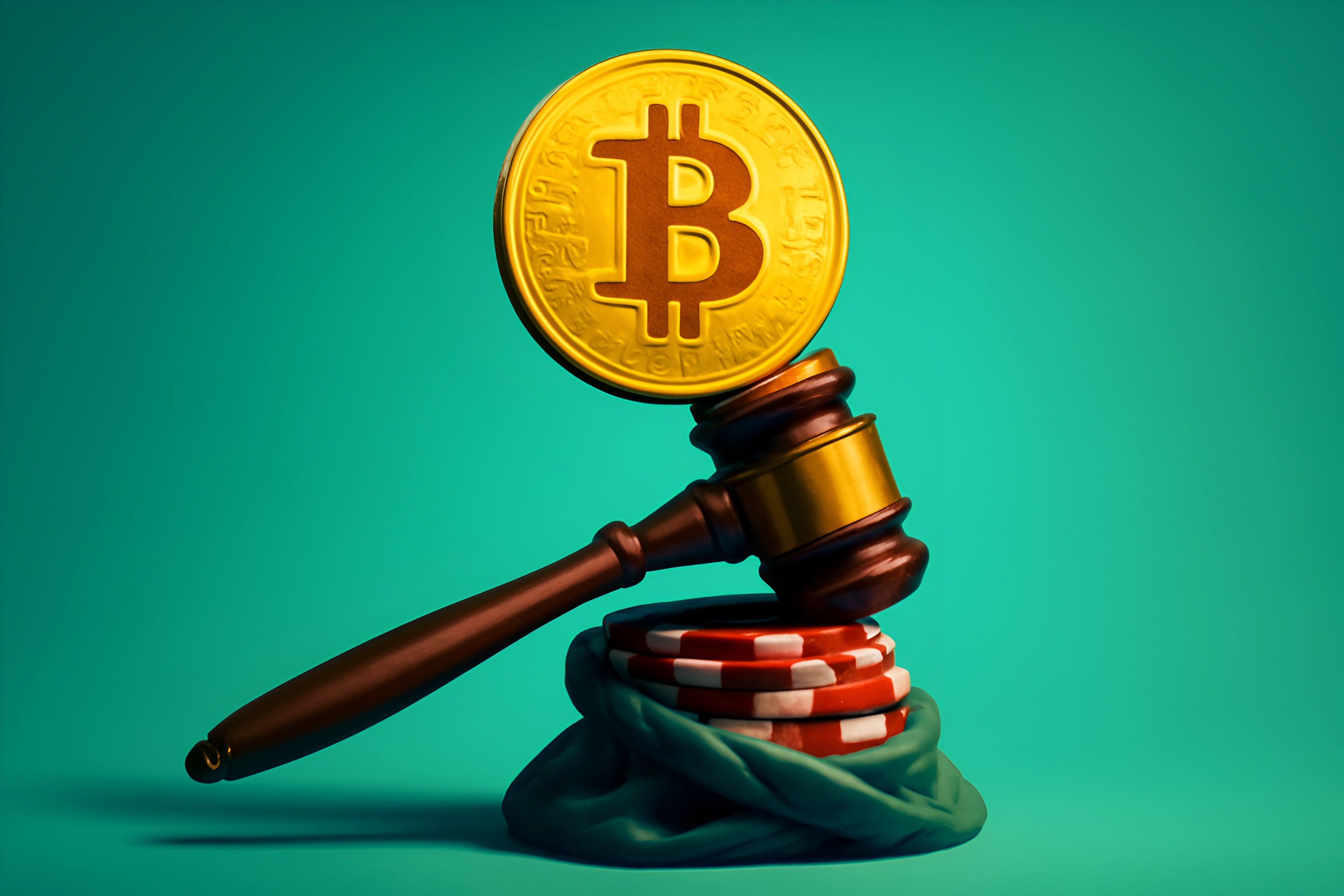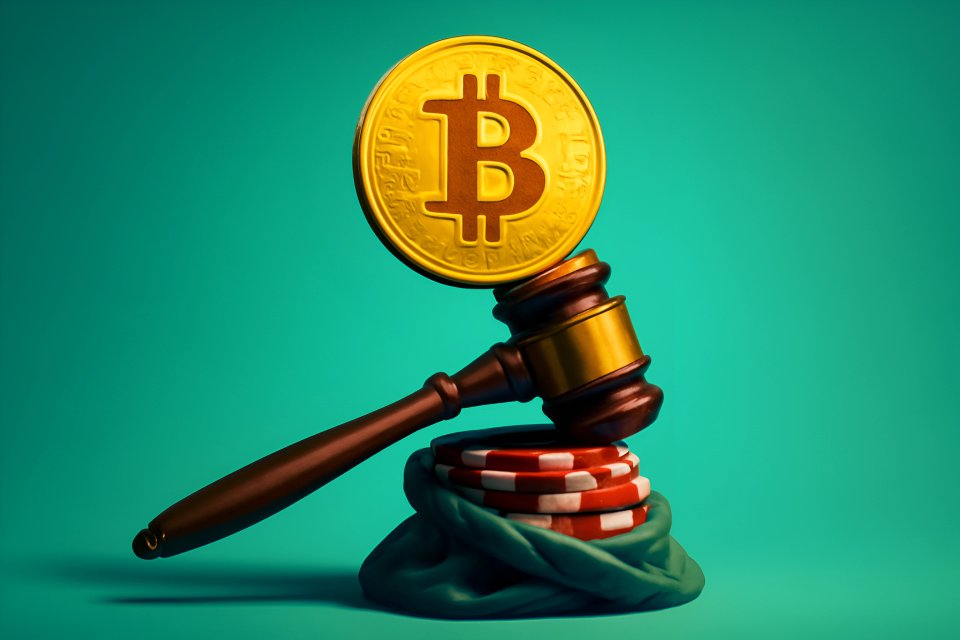
Picture this: massive crypto casino bonuses, seemingly appearing out of thin air, promising fortunes with just a few clicks. Faster transactions, greater anonymity, and often eye-wateringly large sums compared to traditional fiat casinos – this was the siren song of early crypto gambling. It felt like a digital gold rush, a chance to leverage the power of cryptocurrency for unprecedented gaming rewards.
But the tides are turning, aren't they? The once-unfettered world of cryptocurrency is increasingly meeting the firm hand of regulation. This scrutiny naturally extends to every corner of the crypto ecosystem, including the vibrant and fast-paced crypto gambling sector. What does this mean for those tantalizing bonuses that drew so many of us in?
This article will dissect precisely how these emerging crypto regulatory trends are directly influencing the types, terms, and availability of bonus offers at online casinos. Understanding this crypto regulation impact on casino bonuses is no longer just for industry insiders; it's crucial for you, the player. It’s about safeguarding your experience, maximizing your real returns, and navigating a landscape that demands both excitement and astuteness.
The "Wild West" vs. The New Order: A Quick Look Back at Crypto Bonuses
Remember the early days? It truly felt like the Wild West of online gaming. Crypto casino bonuses were often incredibly generous, with fewer strings attached than their traditional counterparts.
Early Days of Crypto Casino Bonuses
In the nascent phase of crypto casinos, which began around 2012 with pioneers like SatoshiDice, operators dangled colossal carrots. We're talking 200-300% deposit matches, often with minimal identity checks, as highlighted by platforms like Bitcoin.com's bonus overview and historical accounts from CryptoManiaks on crypto casino history. The emphasis was squarely on anonymity, leveraging Bitcoin's pseudonymous nature to attract a wave of early crypto adopters eager for privacy and big wins. These initial offers sometimes came with very lax wagering requirements or game restrictions, allowing savvy players to potentially exploit high Return-to-Player (RTP) games, a tactic noted by Esports Insider in their Bitcoin casino analysis.
But this unregulated paradise had its shadows. The lack of standardized terms sometimes led to predatory practices. Imagine the frustration of thinking you've struck gold with a "no-deposit" bonus, only to find hidden 60x or higher wagering requirements, a pitfall warned about by resources like Wizard of Vegas on bonus terms and calls for standardization reported by Geek Vibes Nation. This initial freedom, while appealing, laid the groundwork for the changes to come, as players sought more security and fairness.
The Catalyst for Change
So, why the sudden shift? Why are regulations catching up with such force now? The primary drivers are concerns that resonate across the entire financial world: Anti-Money Laundering (AML) and Know Your Customer (KYC) protocols. The sheer volume of transactions and the perceived anonymity of early crypto operations raised red flags. For instance, a 2025 FATF report cited by Fincrime Central identified a staggering $12 billion in annual crypto casino money laundering, a figure that undoubtedly spurred global regulatory bodies into action.
Beyond AML, there's a growing global push for enhanced player protection and responsible gambling initiatives. Authorities recognized the need to shield players from potentially harmful practices and ensure that the burgeoning crypto casino industry operated with a degree of accountability. Furthermore, the issues of taxation and general financial oversight couldn't be ignored indefinitely. As crypto assets became more mainstream, governments naturally sought to understand and regulate their flow, especially in high-turnover sectors like gambling, a point detailed in Payram's analysis of iGaming regulatory challenges. Incidents like the 2025 ByBit exchange hack, where stolen crypto was reportedly laundered via unregulated casino bonuses, only amplified these concerns.
Key Regulatory Trends Affecting Crypto Casino Bonuses
The regulatory landscape is a complex tapestry, but several key trends are directly reshaping the crypto casino bonus offers you see today. These aren't just minor tweaks; they represent a fundamental shift in how casinos operate and how players can benefit. You need to understand these changes to stay ahead.
Stricter KYC/AML Requirements
Gone are the days of near-total anonymity when claiming hefty bonuses in many jurisdictions. Regulators are mandating robust Know Your Customer (KYC) and Anti-Money Laundering (AML) checks. This often means you'll need to verify your identity before you can even sniff that attractive welcome package. According to a UNLV ICGR research paper on AML in the gaming sector, requirements now include real-time transaction monitoring and source-of-funds verification for bonuses exceeding certain thresholds, like $1,000.
The dream of the truly "anonymous" bonus is fading fast, particularly in regions with stringent oversight. While this might feel like an extra hurdle, it's a crucial step towards creating a safer and more transparent gaming environment. These casino bonus regulations aim to prevent illicit activities and protect both players and legitimate operators from the fallout of financial crime.
Licensing and Jurisdictional Differences
Where a casino holds its license profoundly impacts the bonuses it can offer and to whom. Regulatory bodies like the Malta Gaming Authority (MGA), Curacao eGaming, and even the UK Gambling Commission (UKGC) – though traditionally less crypto-forward, its stringent approach sets a global tone – have varying stances on cryptocurrency and bonus structures. For example, the UKGC has gone as far as banning the mix of casino and sportsbook bonuses in 2025 to curb potential gambling harm.
This leads to a fascinating, if sometimes frustrating, patchwork of rules. A bonus available to a player in one country might be completely inaccessible to someone just across a border. We're seeing the rise of "geo-restricted" bonuses, where your physical location, verified through IP addresses and KYC data, dictates your eligibility. This means casinos must increasingly tailor their promotions, as seen with Curacao-licensed platforms like Weiss Casino, which, according to Bitcoin.com's bonus page, can still offer aggressive packages due to operating under less stringent AML rules as noted by Lawrange.
The following table illustrates how licensing can dictate bonus features:
| License | Bonus Features | Restrictions |
|---|---|---|
| Curacao eGaming | Up to 350% welcome bonuses, daily cashback | Limited player verification, no strict wagering caps |
| Malta Gaming Authority | Tiered matches (e.g., 150%) with ~25x wagering | Mandatory KYC before bonus claims |
| UK Gambling Commission | Strict wagering caps (e.g., 10x), max bet limits (£100) | Often geo-blocked for privacy coin users |
Data compiled from sources including Lawrange on Curacao licenses, MoneyCheck on MGA casinos, and CasinoBeats on UKGC AML threats.
Transparency in Terms and Conditions
Are you tired of squinting at the fine print, trying to decipher convoluted bonus terms? Regulators are too. There's a significant push for clearer, fairer, and more transparent terms and conditions. This directly impacts critical aspects like wagering requirements, including potential caps and much-needed clarity on how different games contribute to fulfilling them. For instance, the UKGC's move to cap wagering requirements at 10x the bonus amount, as reported by SBC News, is a landmark decision influencing global standards.
This drive for transparency also means a crackdown on misleading promotional language. "Guaranteed win" or overly ambiguous phrases are increasingly frowned upon. The goal is to ensure that you, the player, have a realistic understanding of what a bonus entails before you commit your crypto. These online casino promotional changes are designed to empower you, not to trick you. You might see more casinos clearly stating game weighting, where slots contribute 100% but table games like blackjack only 10-20%, as detailed by Gamble.io's guide to bonus T&Cs.
Caps and Limitations on Bonus Amounts/Types
The days of limitless bonus percentages and sky-high maximum bonus values might be numbered in certain regulated markets. Are regulators stepping in to set hard limits? In some cases, yes. This isn't just about the total amount; it can also involve restrictions on certain types of bonuses deemed too high-risk or susceptible to abuse.
For example, some jurisdictions are scrutinizing "no deposit bonuses" with extreme prejudice or placing caps on how much can be won from free spins. The UKGC's £100 max bet limit during bonus play, mentioned by CasinoBeats, is another example of such limitations. This trend aims to foster a more sustainable and less frenetic promotional environment, prioritizing genuine player value over potentially deceptive headline figures.
Responsible Gambling Integrations
Player well-being is paramount, and regulators are ensuring that bonus offers don't inadvertently fuel problem gambling. How? By integrating responsible gambling tools directly with promotional activities. For instance, if you've set a deposit limit on your account, this might now directly affect the size of the match bonus you're eligible for, a system adopted in Malta according to MoneyCheck's MGA casino insights.
Furthermore, expect to see mandatory links to self-exclusion programs or responsible gambling information displayed prominently alongside bonus promotions. This ensures that help is always within reach. The idea is to create an ecosystem where bonuses enhance entertainment, not exacerbate risk. Some platforms even use AI to monitor bonus usage patterns, flagging risky behaviors like rapid loss-chasing with consecutive bonus claims, as noted by Casino Capital on crypto responsible gambling.
Scrutiny on Specific Cryptocurrencies
Not all cryptos are created equal in the eyes of regulators, and this has a direct bearing on "Altcoin Gambling" bonuses. Are some altcoins, particularly privacy coins like Monero (XMR) or Zcash (ZEC), facing more regulatory heat? Absolutely. Their enhanced anonymity features, while prized by some users, are a major concern for authorities focused on AML and CFT (Combating the Financing of Terrorism).
This scrutiny can manifest in several ways: privacy coins might be excluded entirely from bonus eligibility, or deposits made with them might face significantly higher wagering requirements or lower match percentages. CryptoSlate's article on privacy coin regulation highlights that XMR-based bonuses saw a 62% reduction since 2023 due to these pressures. Conversely, stablecoins like USDT are becoming increasingly dominant in bonus offers, underpinning nearly 89% of them due to their price stability and easier compliance, as noted by Cointelegraph's crypto betting bonus guide. This is a crucial factor to consider if you're an altcoin enthusiast looking for the best bonus deals. For more on this, our guide on Comparing Bitcoin Versus Altcoin Casinos offers valuable context.
How Casinos Are Adapting Their Bonus Strategies
Casinos aren't just passively accepting these changes; they're actively adapting their bonus strategies to thrive in this new regulatory environment. Smart operators understand that compliance isn't a burden but an opportunity to build trust and attract discerning players. This evolution is leading to more sophisticated and, ultimately, more player-friendly promotional landscapes.
Shift Towards Compliance-Focused Promotions
The most significant adaptation is a clear shift towards promotions designed with compliance at their core. This means bonuses are increasingly structured to meet the stringent standards set by regulators regarding KYC, AML, and responsible gambling. You'll find that the terms are clearer, and the processes for claiming and using bonuses are more transparent.
Instead of focusing solely on massive, one-off welcome bonuses that might carry complex or even predatory terms, many casinos are now emphasizing long-term value. Think sophisticated loyalty programs, tiered VIP schemes that reward consistent play, and cashback offers that provide a more sustainable form of player benefit. This approach aligns with regulatory goals while still offering tangible rewards to players. For instance, Weiss Casino offers a 10% lifetime rakeback system, as mentioned by Bitcoin.com, moving away from solely large upfront offers.
Innovation in Bonus Structures
Constraint often breeds creativity, and that's precisely what we're seeing in casino bonus structures. To remain attractive while staying compliant, casinos are innovating. You might encounter more wager-free spins, albeit perhaps with a lower individual spin value or a cap on winnings, offering straightforward value without complex playthroughs.
Tiered bonuses are also becoming more common, where your bonus unfolds over several deposits, often with varying match percentages. This encourages sustained engagement rather than a single large deposit. Some casinos are exploring gamified bonuses or mission-based rewards that are both engaging and easier to align with responsible gambling principles. This spirit of adaptation is something we explore in our article on Innovative Betting with Crypto: Beyond Traditional Betting Methods.
Increased Focus on Player Education
With regulators demanding greater transparency, casinos are recognizing the importance of educating their players. This isn't just about burying terms in a lengthy document; it's about providing clear, concise, and easily understandable explanations of how bonuses work. You might find more FAQs, video tutorials, or interactive guides explaining wagering requirements, game contributions, and withdrawal conditions.
This proactive approach to player education helps build trust and reduces misunderstandings that can lead to player frustration. A well-informed player is more likely to have a positive experience, which benefits both the player and the casino in the long run. This aligns with the global call for casino bonus terms standardization that aims to make promotions less confusing.
Market Specialization
Given the diverse regulatory landscapes across different jurisdictions, casinos are increasingly specializing their bonus offers for specific regulated markets. A "one-size-fits-all" approach to bonuses is no longer viable for operators aiming for global reach while maintaining compliance. This means a casino might have a distinct set of promotions for players in a country with an MGA license versus those in a region governed by Curacao eGaming rules.
This specialization allows casinos to tailor their offerings to meet local legal requirements and player preferences effectively. For players, it means the bonuses they see are more likely to be compliant and relevant to their region. Platforms like BC.Game are developing dynamic offer systems that adjust terms based on IP detection to navigate this fragmentation, as noted by Cointelegraph.
What This Means for You, The Player: A Crypto Bonus Guide for the New Era
So, with all these regulatory shifts and casino adaptations, what's the bottom line for you, the player? It means you need to be more informed and discerning than ever. This new era demands a smarter approach to claiming and using crypto casino bonuses. Here’s your crypto bonus guide to navigating it.
Reading the Fine Print is More Crucial Than Ever
This cannot be overstated: you must read and understand the terms and conditions associated with any bonus. Look closely at wagering requirements – how many times do you need to play through the bonus (and sometimes deposit) amount? Check for game restrictions; not all games contribute equally, and some might not contribute at all. Be aware of withdrawal limits, especially those applied to winnings derived from bonus funds.
Crucially, check for KYC requirements before you deposit for a bonus. There’s nothing more frustrating than winning big only to find you can't withdraw because of an unmet verification step. As Gamble.io's guide on bonus T&Cs emphasizes, understanding details like max bet rules ($5 limits during bonus play are common) is vital.
Verifying Casino Licenses and Regulatory Standing
Your safety net in this evolving landscape is the casino's license. Before you even consider a bonus, verify that the casino operates under a reputable regulatory authority. Look for licensing information, usually found in the website's footer, from bodies like the MGA, Curacao eGaming, or others relevant to your jurisdiction. You can often cross-reference this information on the regulator's official website.
A valid license indicates that the casino adheres to certain operational standards, including those related to fair play and player protection. While no license is an absolute guarantee against all issues, playing at licensed casinos significantly reduces your risk compared to unregulated platforms. Resources like CryptoDaily UK on UKGC licensed casinos provide insights into what to look for.
Being Aware of Jurisdictional Restrictions
Understand that the amazing bonus offer you saw advertised might not be available to you simply because of where you live. Geo-restrictions are a reality. Casinos use IP detection and KYC data to enforce these rules, so attempting to circumvent them can lead to account closure and forfeiture of winnings.
Always check if players from your country are eligible for specific promotions. This information is usually found in the bonus terms and conditions or the casino's general T&Cs. Being aware of these restrictions upfront can save you a lot of disappointment later. This is particularly relevant as operators tailor offers to comply with diverse regional laws, such as specific EU player bonuses incorporating GDPR compliance, as detailed by Payram's iGaming analysis.
Evaluating True Bonus Value
The biggest headline number doesn't always equate to the best value. You need to look beyond the flashy percentages and assess the real value of a bonus considering all its terms. A 300% match bonus with a 60x wagering requirement on bonus + deposit might be far less valuable than a 100% match bonus with a 25x wagering requirement on the bonus amount only.
Consider factors like the wagering contribution of your preferred games, the time limit to meet the requirements, and any caps on winnings. Sometimes, a smaller bonus with fair terms is a much better deal. For added security in this complex environment, refer to our guide on Avoiding Common Crypto Casino Scams, and once you've secured a fair bonus, manage it wisely with tips from our Step-by-Step Guide to Managing Your Digital Bankroll in Crypto Casinos.
The Future Outlook: What's Next for Crypto Casino Bonuses and Regulation?
The world of crypto and online gambling is anything but static. As technology evolves and regulatory frameworks mature, what can we expect for the future of crypto casino bonuses? One thing is certain: change will be a constant companion.
Continued Evolution
Don't expect the current regulatory landscape to be the final word. We are likely to see continued evolution, with more regulatory changes and refinements as authorities gain a deeper understanding of the crypto space and its intersection with gambling. This means ongoing adjustments from both casinos and players. The key how crypto laws affect bonus offers will remain a pertinent question.
This could involve more specific rules around new types of crypto assets, decentralized gaming platforms, or even the metaverse's gambling applications. Staying informed will be crucial. The 2025 Global Gambling Accord's proposals for standardized rules, such as 200% maximum welcome offers globally, indicate a trend towards more defined global standards.
Potential for Greater Harmonization (or Divergence)
A big question is whether we'll see greater international harmonization of crypto gambling regulations or if the current fragmentation will persist or even increase. Efforts like the aforementioned Global Gambling Accord suggest a push towards common standards, which could simplify compliance for operators and create a more predictable environment for players.
However, national interests and differing regulatory philosophies could also lead to continued divergence, creating a complex global patchwork. The path taken will significantly influence how bonuses are structured and offered across different markets. The pilot programs by Curacao and Malta to adopt these standards in 2026, as mentioned by Lawrange and Payram, will be key indicators.
The Role of Technology
Interestingly, the very technology that powers cryptocurrencies – blockchain – could play a significant role in shaping future transparent and compliant bonus offers. Imagine smart contracts automatically executing bonus terms, ensuring fairness and immutability. This could provide unprecedented transparency, allowing players to verify bonus conditions directly on the blockchain, a concept explored by Coingabbar on smart contracts and casino bonuses.
Decentralized Autonomous Organization (DAO) casinos are already experimenting with governance tokens for bonus distribution and community-vetted rules. While these face their own regulatory hurdles, such as FATF’s 2025 VASP guidelines potentially classifying DAO participants as money transmitters, the underlying technological potential for enhanced transparency is undeniable. For more on the broader tech advancements, see our post on Future Trends: Sports Betting vs Evolving Crypto Casino Technologies.
The Enduring Appeal
Despite the increasing layers of regulation, don't expect crypto bonuses to disappear. They are a powerful tool for player acquisition and retention, and their core advantages – speed, potential for innovation, and appeal to a tech-savvy demographic – remain strong. The initial allure of crypto betting's advantages will likely ensure their persistence.
What we will see is a maturation of these offers. They will become more structured, more transparent, and more closely tied to responsible gambling principles. The "wild" days may be over, but the era of smarter, safer crypto bonuses is just beginning.
Conclusion: Navigating the New Landscape with Crypto Casino Sharks
The regulatory currents are undeniably reshaping the world of crypto casino bonuses. What was once a domain of almost unbridled freedom is now moving towards greater transparency, enhanced player protection, and stricter compliance. This isn't a step backward; it's a necessary evolution for an industry coming of age.
Empowerment comes through knowledge. By understanding these trends – the stricter KYC, the jurisdictional nuances, the push for clearer terms, and the integration of responsible gambling – you, the player, can make smarter, safer choices. You can still find fantastic value, but it requires a more discerning eye and a commitment to due diligence.
At Crypto Casino Sharks, we're committed to keeping our fins on the pulse of these developments. We'll continue to provide sharp, insightful analysis to help you navigate the exciting, and sometimes complex, world of crypto casinos. Your journey to secure and rewarding crypto gambling is our priority.











